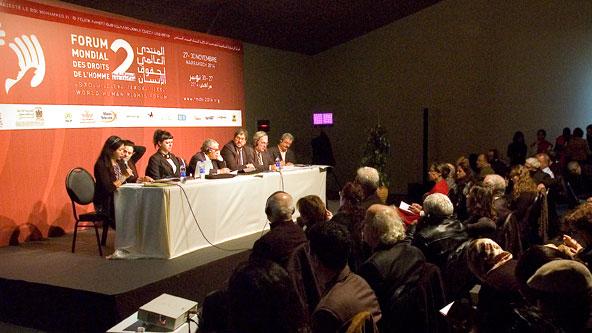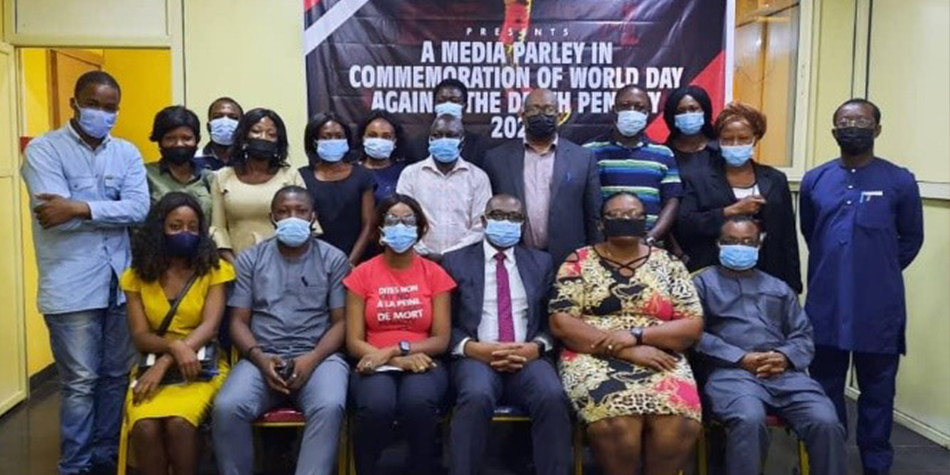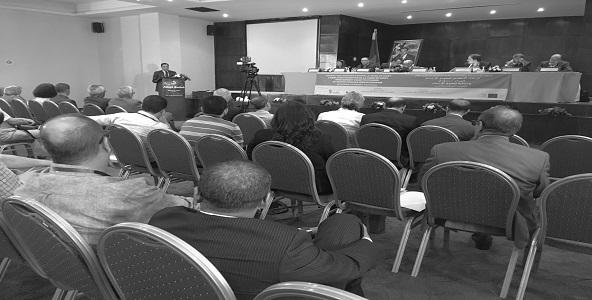
Morocco’s death penalty takes centre stage at Marrakesh forum
Abolition
The king of Morocco himself launched the discussion during the opening ceremony on 27 November 2014: “We are welcoming the debate around the death penalty conducted by civil society, numerous parliamentarians and lawyers. It will allow this issue to mature and be dealt with in depth,” Mohammed VI said in a message read by Justice and Liberties Minister Mustapha Ramid.
Abolitionists taking part in the second World Human Rights Forum in Marrakesh took his cue, at a time when Morocco continues to hand down death sentences and has so far refused to support a resolution calling for a global moratorium on executions at the United Nations’ General Assembly, even though nobody has been executed in the country since 1993.
“This is the first time since 1999 that the king has spoken on the death penalty”, said Abderrahim Jamai, co-ordinator of the Moroccan Coalition Against the Death Penalty.
MP Kadhija Rouissi, a member of the Moroccan Parliamentary Network Against the Death Penalty, said she was torn between “the despair of Morocco’s fifth abstention from the vote on a UN moratorium and the hope of hearing of His Majesty’s interest in the debate started by activists, lawyers and parliamentarians on the death penalty.
The Parliamentary Network, which brings together 240 MPs from various parties, has tabled an abolition bill. “The rule of law cannot exist without pure and simple abolition,” Rouissi said.
“Let us not content ourselves with discussing the death penalty”
World Coalition President Florence Bellivier was of the same view: “We must move fast and not content ourselves with discussing the pros and cons of the death penalty. We must not content ourselves with moratoria such as the one in force in Morocco, because although they save lives, they are as fragile as life itself,” she said.
This is why my abolitionist friends and I are calling for the total, irreversible and universal abolition of capital punishment,” she added.
The same reluctance to abolish disused death penalty legislation can be seen across the Arab World. A representative from the Algerian Human Rights League said his country, a sponsor of the UN moratorium resolution, had “settled in a comfortable moratorium situation” but continued to hand down death sentences.
A member of the Tunisian Coalition Against the Death Penalty regretted that her country had not abolished capital punishment while adopting a new constitution, but she vowed to keep up the fight. Abolitionists there are preparing to lobby newly elected MPs, especially with a new anti-terror billed tabled to come before parliament soon.
“Religious arguments are among the most widely used by governments in this region, with the support of conservative politicians,” Rouissi said. An MP from Koweit who attended the World Forum’s session on abolition spoke up in favour of the death penalty in the name of Islam and consideration for the victims of crime. But Rouissi replied that abolition “does not question Islam, only fanaticism”. As for victims’ families, Renny Cushing, an American whose father was murdered, said: “We need to recognise that the death penalty is a human rights violation AND that victims of crime are entitled to justice.”
North Africa’s slow path towards abolition is all the more out of place when considering progress on the rest of the continent. Alice Mogwe, who represents FIDH on a panel of experts advising the African Commission on Human and People’s Rights on the death penalty, is confident that a protocol calling on all African countries to abolish capital punishment will be adopted in the coming year.
Political manipulation and trivialisation of violence in the Middle East
In the Middle East, other challenges have emerged. Jordan-based Taghreed Jaber, Penal Reform International’s regional director, noted the growing political manipulation of the death penalty. “We feared capital punishment for Hosni Mubarak, now his opponents are the ones being sentenced to death” in Egypt, she said.
Jaber added that spreading conflict in the region and its media coverage have “trivialised violence”. For example, the rise of violent crime in Jordan could be an obstacle to abolition there, she warned.
Yet public opinion is not as favourable to the death penalty as many retentionist governments would like us to believe, especially in Asia. The Taiwan Alliance to End the Death Penalty recently surveyed 2,000 Taiwanese citizens, 85% of whom spontaneously said they were in favour of capital punishment.
When offered to abolish it and replace it with a prison sentence without possibility of parole for 25 years, however, 41% supported the idea. And 71% said they would support abolishing the death penalty to replace it with life without parole and an obligation for the criminal to work to compensate the family of their victim!
“Give people more information and offer them a choice, and they will change their mind on death penalty,” said TAEDP director Hsinyi Lin.
New challenges are thus constantly forcing abolitionist to explore new approaches. This is also the case in the US, where lawyer and World Coalition Vice-President Elizabeth Zitrin said that “arguments about human rights will not abolish the death penalty”. Instead, she said cases of innocence on death row – 149 identified in the past 40 years – as well as the astronomical cost of capital trials, racial discrimination in the application of capital punishment and the growing number of law enforcement professionals and criminologists denouncing its inefficiency to combat crime have been instrumental in curbing the use of the death penalty in the US.
Categories
Morocco





